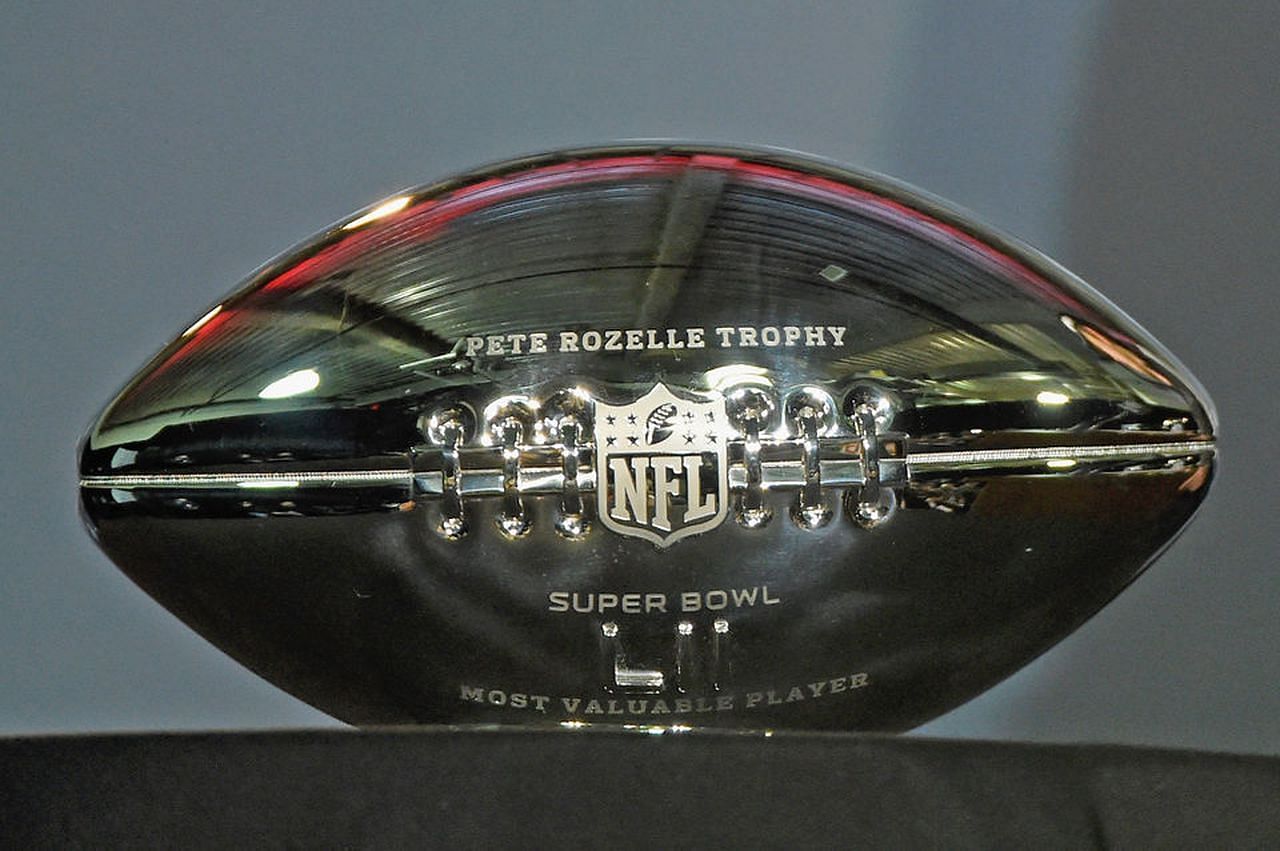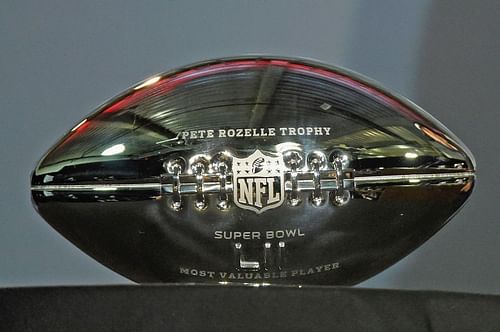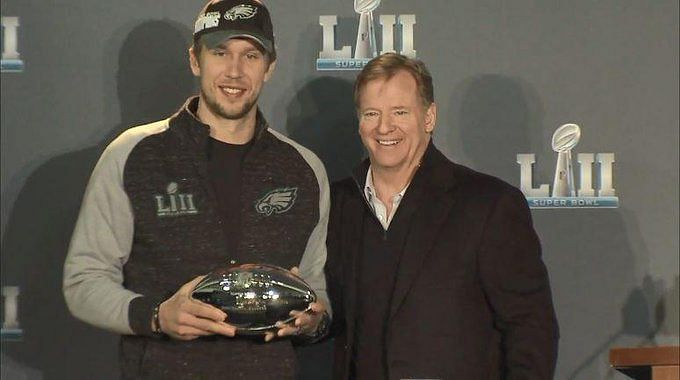
The NFL rename the Super Bowl MVP award in honor of former league commissioner

Upon completion of Super Bowl XXV, the Pete Rozelle trophy gained its first ever receipient after New York Giants running back Ottis Anderson rushed for 102 yards and a touchdown in their 20-19 victory over the Bills. For his efforts, Anderson had the honor of being named the Super Bowl MVP, which, for the first time in 1990, was chosen by the NFL itself, rather than SPORT magazine, who had been making the selection since the inaugural Super Bowl.
To mark the event, the NFL decided to commission the creation of a trophy, which would be presented to all future Super Bowl MVPs, and it was christened, The Pete Rozelle Trophy. Since its inception, there have been 26 overall winners, with one player collecting the trophy on five separate occasions. There are no prizes for guessing the player in question is Tom Brady.
Fifty-six percent of winners are quarterbacks, but the title of "most unexpected winner" undoubtedly goes to Desmond Howard of the 1997 Green Bay Packers, who holds the record as the only special teams player to ever collect the award. At SB XXXI, Howard returned a kickoff 99 yards for a touchdown, which is unsurprisingly the longest return in Super Bowl history.
The winners' stories are all interesting, but the most captivating of all is the story of the man whose name adorns the MVP trophy, Pete Rozelle.
Who is Pete Rozelle?
Rozelle initially made his name as the general manager of the Los Angeles Rams, whom he joined in 1957, at a time when the franchise was a mess on and off the field. While he was unable to make an impact in regard to the teams' on-field results, he managed to transform them from a financial standpoint, turning a once loss-making entity into a profitable business after barely three years at the helm and while still in his early 30s.
His performance in LA did not go unnoticed in league circles, and following the death of the then NFL commissioner, Bert Bell, it was Rozelle who was eventually elected as his replacement. What he inherited was a 12-team league and, ultimately, a failing business model, and what he handed over to his eventual successor 30 years later was slightly different.
Early on in his tenure, he set about implementing changes that would provide the foundation for the NFL that we know and love today. He negotiated TV contracts, which ensured that all games were televised and that all teams received a share of the profits.
When the AFL started to dilute the NFL product by signing some of the top available talent, Rozelle was at the forefront of agreeing to a merger which led to the creation of the Super Bowl, the draft and so much more. To make that dream a reality, he had to testify in front of Congress.
If you were to ask a random member of the public to name three things synonymous with NFL, whatever they say, it's a good bet that Rozelle was responsible for its existence.
Paul Tagliabue, the man who would eventually replace Rozelle upon his retirement in 1989, had this to say about his predecessor:
"No name is more synonymous with the Super Bowl than Pete Rozelle. It was his imagination and foresight that made this great event a reality, and his guidance that elevated the Super Bowl to an unofficial national holiday."
As the NFL stepped into the 1970s, Rozelle unveiled his next creation, Monday Night Football. Having tried playing on Monday nights throughout the 1960s, with varying success, Rozelle made it his goal to have the NFL on prime time TV every Monday night during the season. With the league's TV deal coming up for renewal, and in the face of skepticism from TV networks, the commissioner used all his powers of persuasion and a few threats to strong-arm ABC into an agreement. The rest is history.
What was behind the rivalry with Al Davis?
After spending 30 years in such a high profile and highly political role, it is never going to be smooth sailing. As such, he was at the center of some hugely controversial incidents, including the betting scandal of 1963, and the multiple restrictions of trade lawsuits filed by players. One incident, above all others, that fans associated with him was his long-running feud with flamboyant Raiders owner Al Davis.
The feud dates all the way back to the league merger in 1966, when Davis was the commissioner of the AFL, and had always held resentment over the amount of credit Rozelle had received on the back of that deal. Other incidents added fuel to the fire, such as Davis being removed from the NFL's competition committee.
Finally, in 1980, their relationship disintegrated in spectacular fashion, as Davis sought to move his Raiders franchise from Oakland to LA, only for Rozelle to take legal action to stop the relocation. Davis would then take legal action of his own, against the NFL. After a hung jury in the first trial, Davis would come out victorious at the second time of asking, as it was decided that the league had violated anti-trust laws, and the Raiders shifted operations to LA in 1982.
The feud played out in a very public forum, with both regularly speaking to the media and providing critical assessments of each other. The then-commissioner had this to say during a TV appearance prior to the retrial:
"We're fighting for a principle. We don't think the antitrust laws were intended to let a team just get up and move after 12 straight years of sellouts and to set up a situation where every team can conduct an auction for its franchise when its lease is up."
Despite his strained relationship with Davis, Rozelle is widely regarded as the greatest commissioner of all time, and the man who took over a league in financial trouble, half-empty stadiums and limited public interest and turned it into a national institution. He laid the foundation for the NFL to become the multi-billion dollar, worldwide juggernaut it is today. He is, without a doubt, the original MVP.
